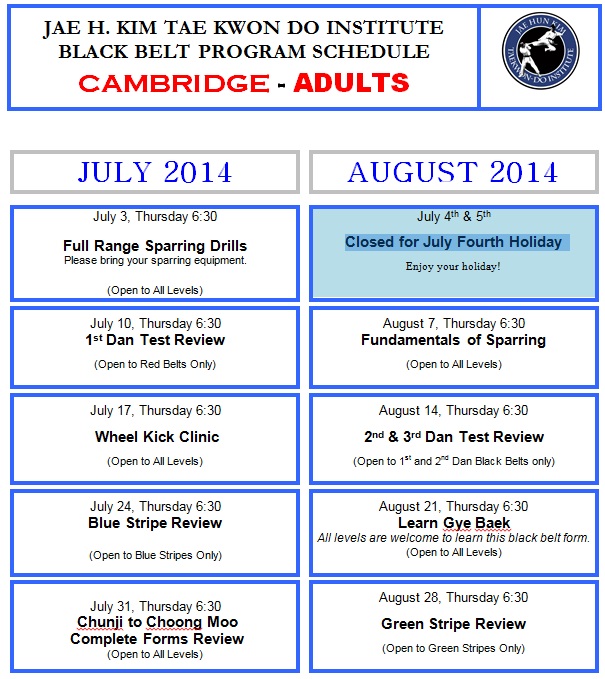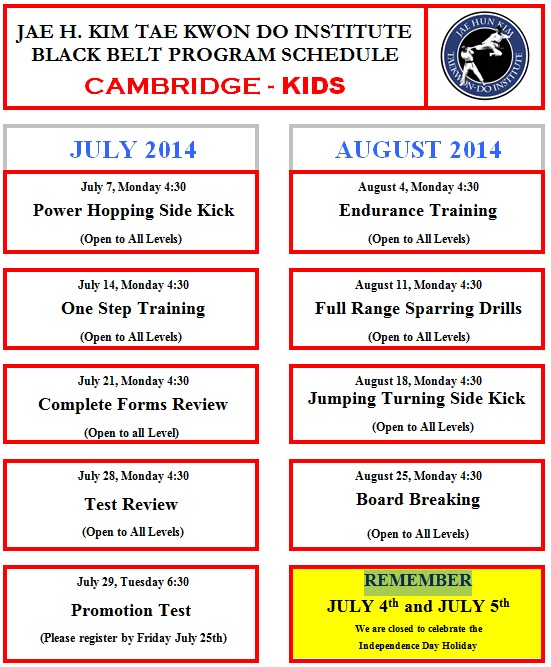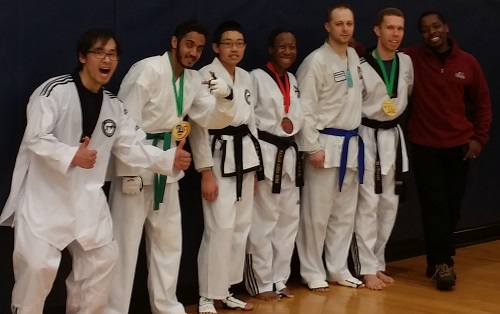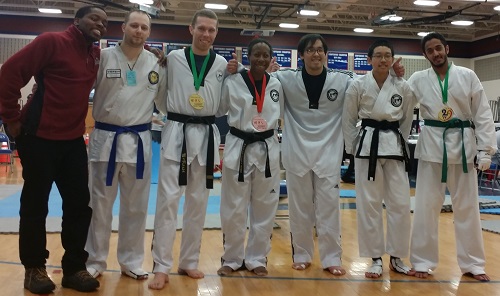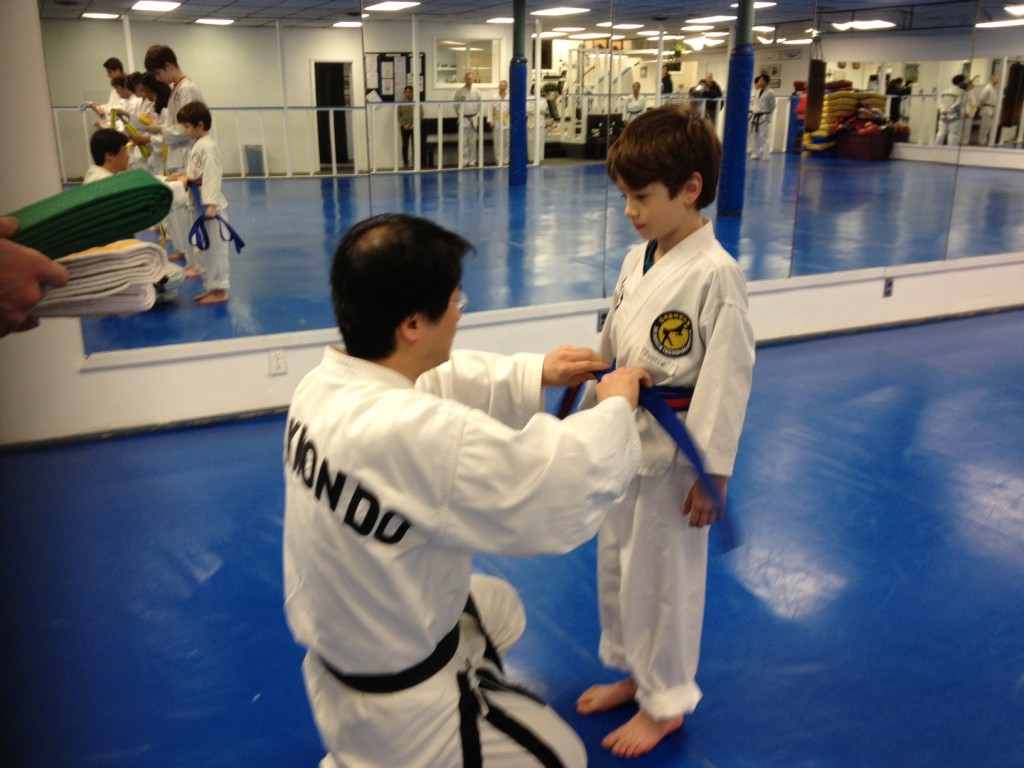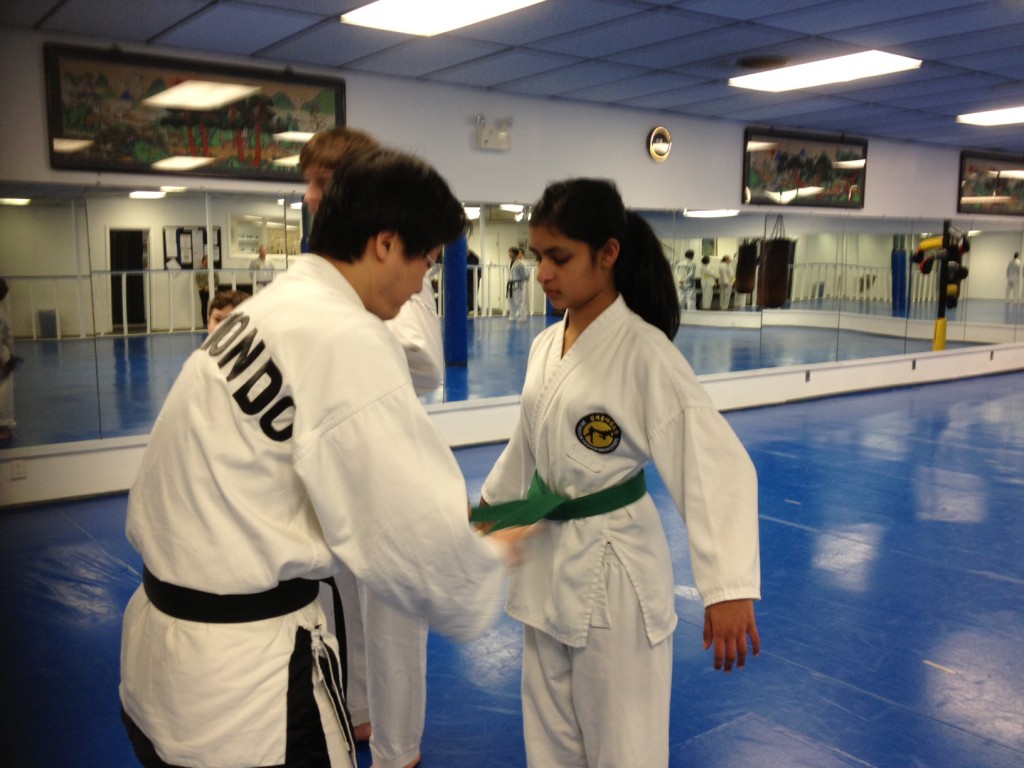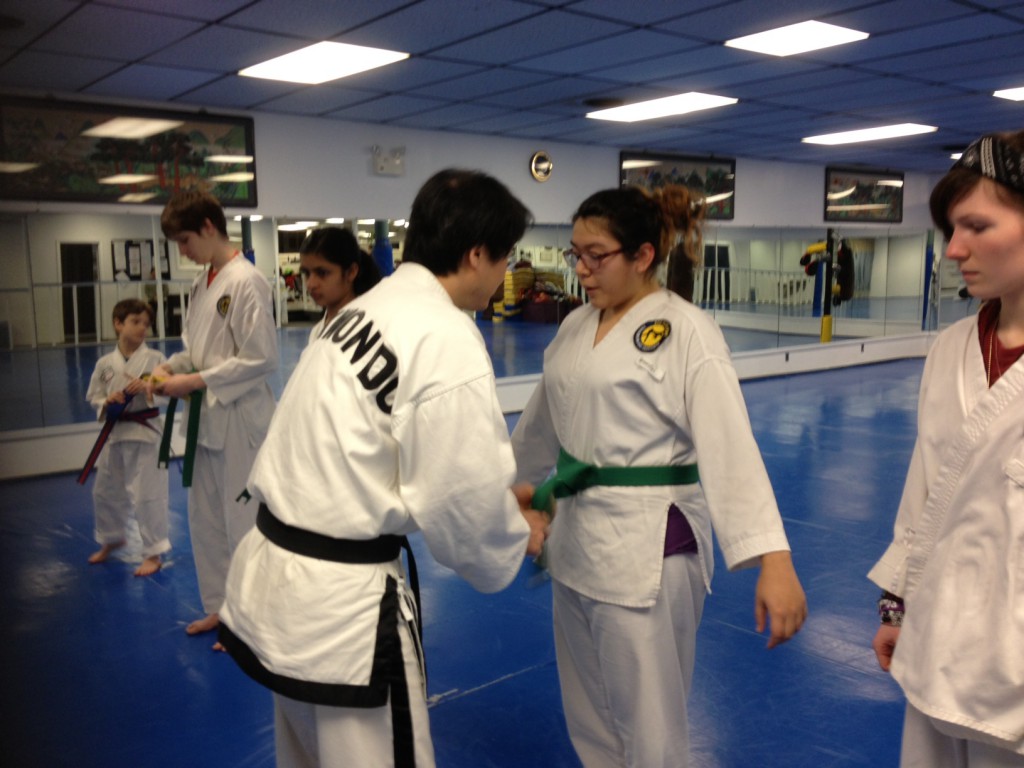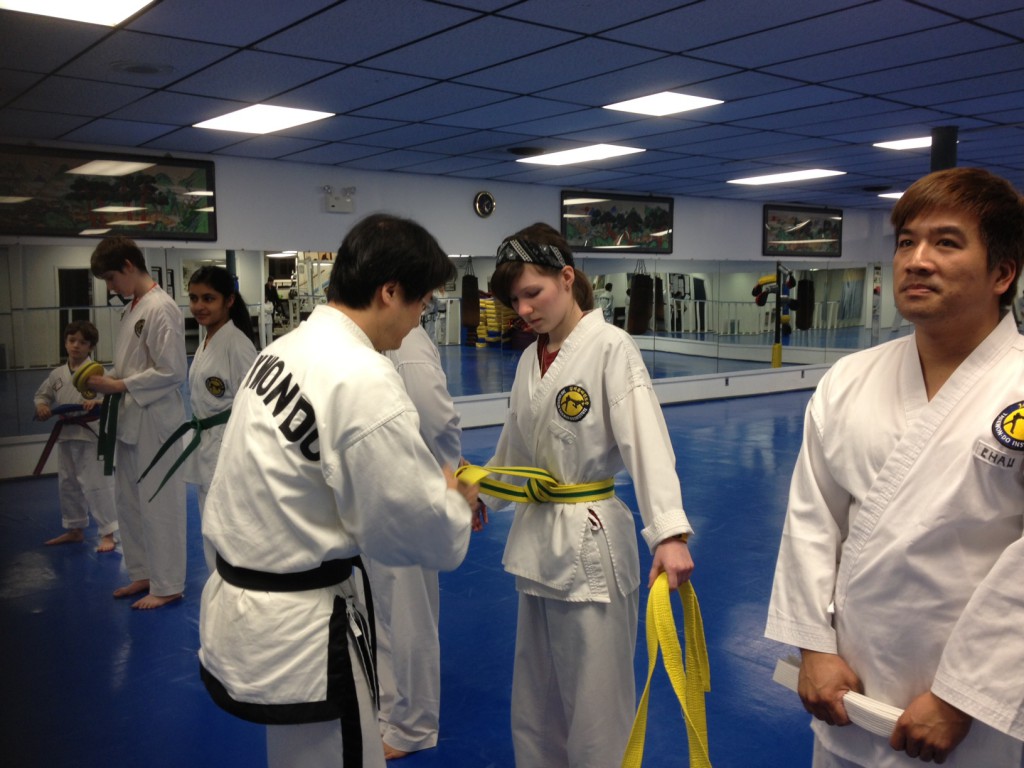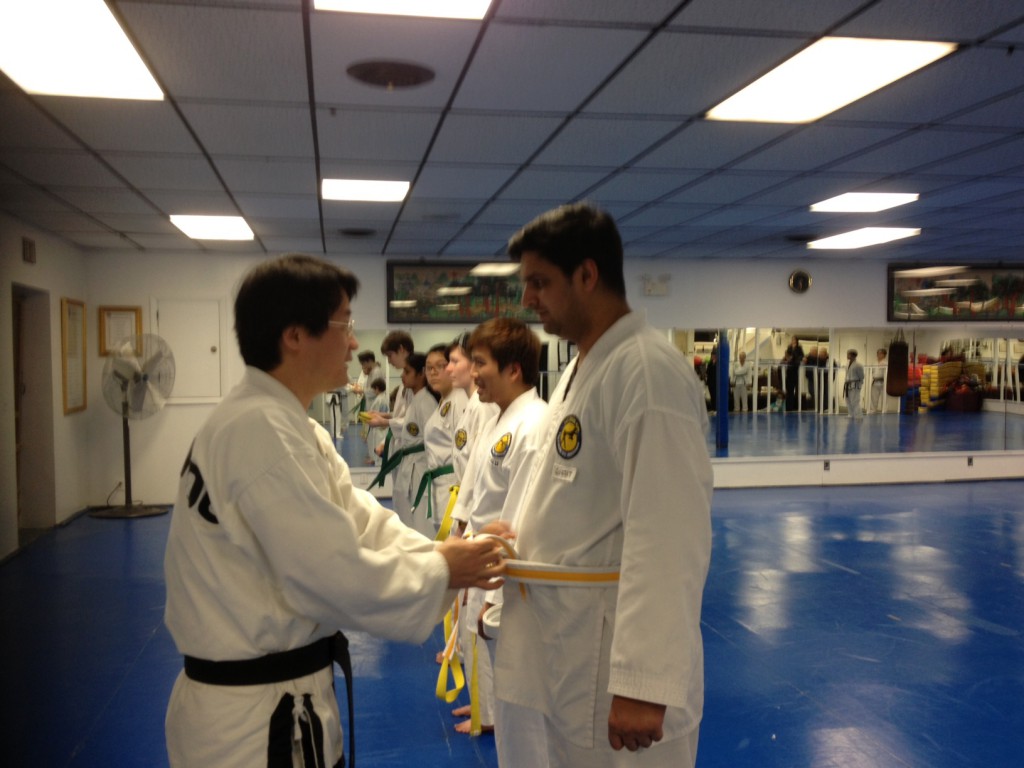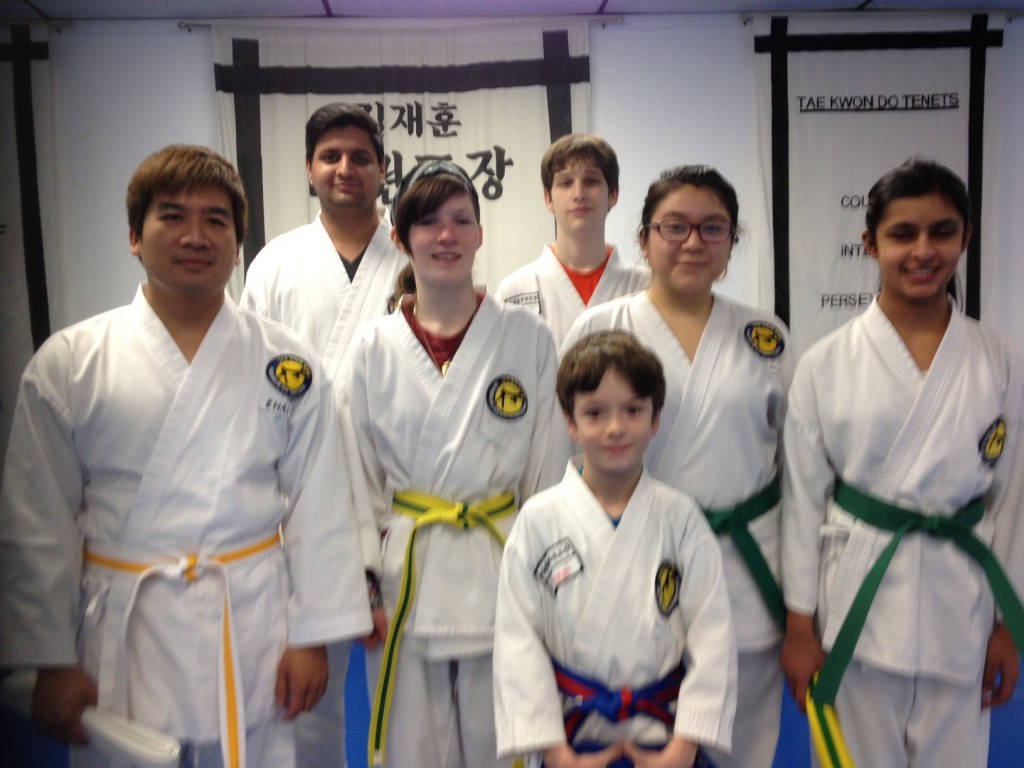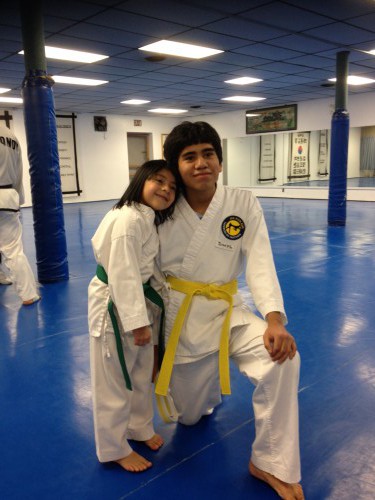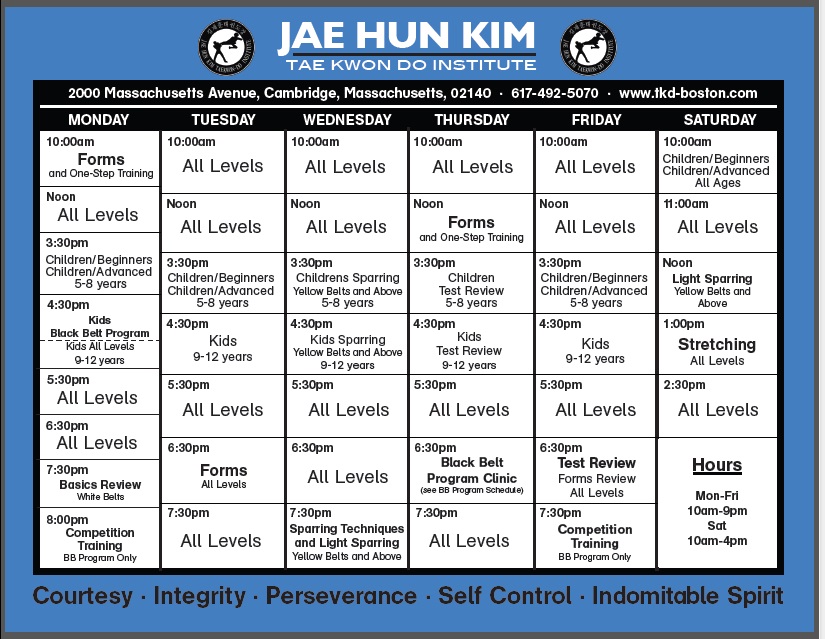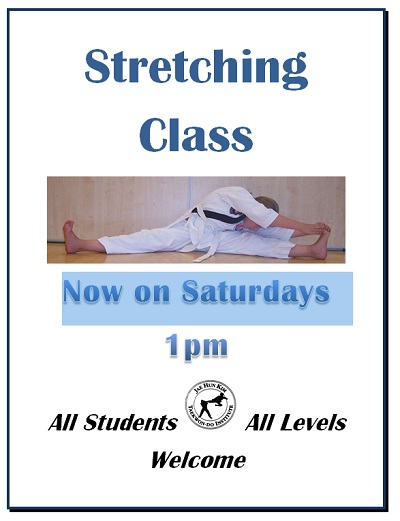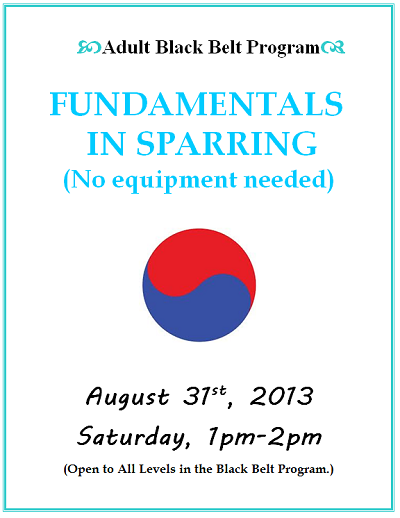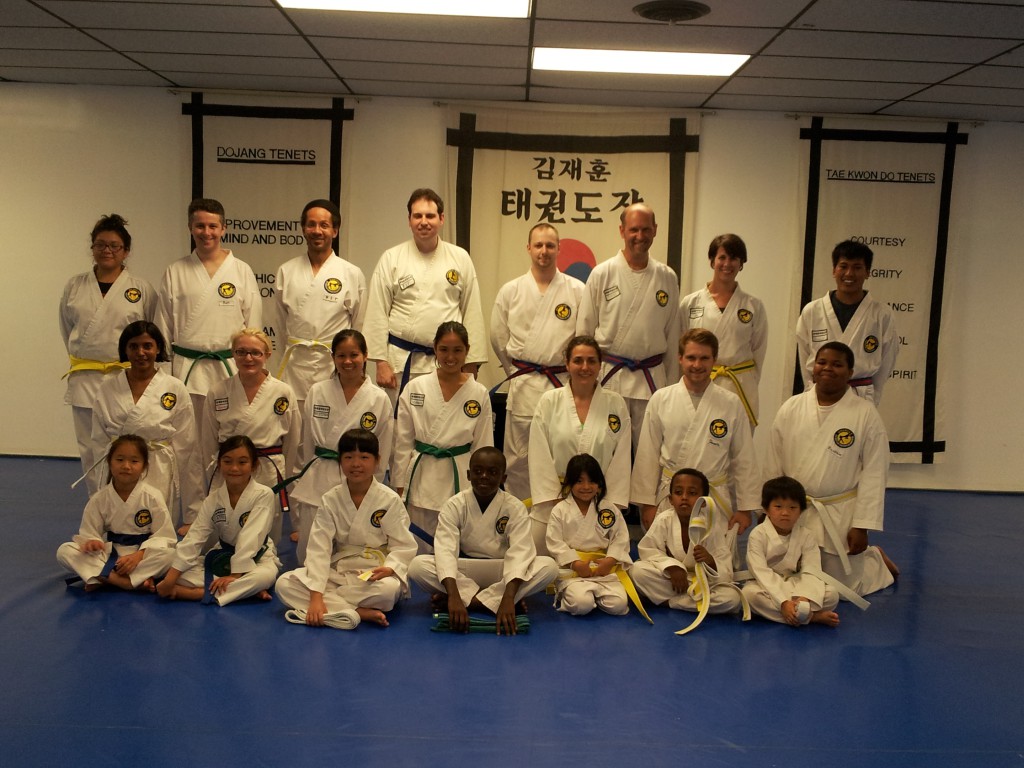Author Archives: Cecilia Tan
Congratulations from the U.S. Classic tournament
Two of our black belts from here at the Cambridge School came home with medals from this weekend’s U.S. Taekwondo Classic in Tolland, Connecticut. Sean Bjerke took gold in his division and Nailah Mims took bronze in hers. Also pictured, team coach Pata Dibinga from the Boston school, Cambridge member Alex Kwon, and some additional team members from Boston.
Rank ceremony photos!
Back to school time!
New Weekly Schedule
The new schedule is out and ready for everyone. The two main changes are the stretching class and BB program seminars have swapped places, and we have added a competition training seminar twice a week that is open to Black Belt program members.
Download the PDF of the schedule to print at home:
tkd_schedule_2013.pdf
Stretching class now Saturday 1pm weekly
Black Belt Program Schedule Changes
Starting in September, the weekly black belt seminar will move from Saturday to Thursday nights at 6:30. The last Saturday seminar will be this weekend at 1pm: Fundamentals of Sparring. No equipment is needed for this class, which will be an excellent time to sharpen up sparring skills and gain confidence in the ring.
Congratulations all who passed belt promotion
Olympic Excitement and working out at home
Over 70 million people in 91 countries practice taekwondo, according to a recent AP news story. That is a lot of people who will be interested in the coverage of the sparring matches in the Olympics in London, going on right now. Also according to the story, to keep the sport of sparring fresh and interesting–and fair–the matches will be scored electronically and have instant replay available. Why? What happens in a taekwondo fight, whether in competition sparring or a self-defense situation, happens so fast that sometimes the human eye cannot even see it. Even trained judges can miss what happened. The new electronic system removes the doubt and rewards the achievements of the fighters.
But when you work out in your home dojang, when you take sparring class, no one is there to award you points. The achievements are measured on a different scale. Did you achieve what you set out to do? Did your technique improve? Did you learn what you need to move to the next level? Did you work hard? Did you build strength or flexibility or improve your health? Chances are you can say yes to all those things if you are taking class regularly. And those things are more important than “points” or medals.
Taekwondo at the Olympics and at home
The summer Olympic Games in London will be starting soon and you may be hearing about taekwondo as an Olympic sport. Did you know the United States is one of the top countries in taekwondo? Since taekwondo was admitted to the Olympics in 1988, South Korea leads the medal count with 12, Chinese Taipei has 7, and the USA is next with 6 medals. 64 countries competed in taekwondo in the Olympics in 2008.
Olympic competition represents the fighting spirit of taekwondo and the constant striving for self-improvement that is part of the art. Olympic-style sparring is only one piece of the art. Self-defense is a separate skill from the sport that is sparring. Forms–their performance and perfection–is another aspect. Union of mind and body in health and confidence is another. When you practice your kicks and punches, though, it’s fun to dream of gold medals.

